- Home
- Alice Hoffman
Property Of, the Drowning Season, Fortune's Daughter, and At Risk Page 14
Property Of, the Drowning Season, Fortune's Daughter, and At Risk Read online
Page 14
“Bullshit,” I whispered. “Not for either one of us. Only for honor. For your goddamn Orphans and your goddamn honor and nothing else.”
“You want to know?” said McKay. “You really want to know? I’ll tell you. I’ll tell you it all, if you really want to know.” He was talking softly now, talking softly and sipping coffee and I had gone too far. I had pushed him too far. I wanted to go back into the silence. I had only wanted a few words; I had never asked to be told it all.
“Forget it,” I said.
“I held the gun,” McKay said. “I pointed it at him, at Kid Harris.”
“Forget it,” I said.
“And then he turned,” said McKay.
I rose from the table and walked from the diner toward the Chevy. Through the plate-glass window of the diner I could see McKay pay the cashier. McKay walked to the Chevy and sat in the driver’s seat. He turned on the ignition and steered the Chevy back toward the highway. We did not look at each other.
“Did you hear me?” McKay said. “I said he turned.”
I lit a cigarette. “So he turned, so he turned,” I said. “Big deal, so he turned. So I don’t care. I don’t care if he’s dead.”
McKay’s eyes were on the highway lanes. We drove into the town where Irene lived with Viet Nam, where gulls gathered in summer and winter. The noise of boardwalk rides and amusements was in the air. McKay parked the Chevy in front of a dirty-pink stucco apartment building whose address matched the one Starry had given me. We sat for a long time in the Chevy. I smoked several cigarettes while McKay left the Chevy to walk on the boardwalk. I listened to the gulls and to the radio.
McKay did not return to the car until the sky was as pink as the stucco apartment building. I had fallen asleep. A cigarette had burned itself down to ash in my hand.
McKay sat on the curb across from Irene’s apartment building. I left the Chevy and sat near him; our feet were side by side in the gutter. I did not say a word.
“I shot him in the back,” McKay said.
His voice was so soft I could barely hear the words, so soft that I could not recognize it as McKay’s. Gulls flew over the Ferris wheel, over the waves. In a third-story window I thought I saw Irene dancing to some song, some radio, her arms around a figure that might be Viet Nam.
“You did not,” I said.
“The Dolphin saw it. The Dolphin was right there and he saw it.”
I held my arms around McKay and whispered sounds that were not quite words in his ear. His dark eyes were closed and he held one hand to his head. Above us, and over the waves, the sky was scarlet and navy blue; it was beginning to be night. Kid Harris had won with one simple movement: he turned as his pale eyes stared into the barrel of the .22. He forced McKay to strike him not between the eyes, but, instead, between the shoulder blades.
“I fucking shot the bastard in the back,” said McKay.
I forgot the touch of Kid Harris’s hand on me. I forgot the smile of Danny the Sweet. I thought of honor, only of honor and McKay. McKay rested his head at the curve of my neck. I could feel the flutter of his eyelashes as he tried to stop his eyes from closing. And finally there was silence. It seemed I could not live with the silence and I could not live without it. I watched reflections from apartment windows. And I shut my mouth, shut my pain, my sight, my vision. I tried to forget what I knew. Boots were in the gutter and the July night stars were out. I wanted to know, and I did not want to know. I wanted to see, and I did not want to see.
To see or not to see, to know or not to know. Is there ever a choice? You answer whatever you like, but I say no; there is no choice. There is the battle, there is confusion; there is no choice.
Why did I insist, why did I demand to be told what I did not want to be told? Perhaps for the same reason McKay pulled the trigger although Kid Harris had already turned. Because it was too late, because the motion was already fixed by magic or the environment, by nothing, by everything. Reasons were too much to ask for; only lies, or possibilities.
And so, for no reason, my enemy was dead. My enemy fell when the bullet hit Kid Harris in the back. One accident in the dark, one error of perception and the movement of one foot and my enemy, Honor, was dead.
For McKay honor had been the world. For me it had only been a word, and there is no fiercer enemy than a word. A word that can be written down in pages and punctuated with quotation marks and commas and spelled out in contracts and poems and sighs, in old whispers and song lyrics, in promises and vows. And the word I thought had always kept McKay from me had now died in the waterless creek in the darkness of one July night. It died with blood that ran into the sand as Kid Harris lay with silent pale eyes.
But for McKay, it had been the world. One word had been all reason, and now it lay at the bottom of the creek. Because of that I wanted a resurrection. I would have agreed to the use of any herb, poisonous or not; I would have mixed the potion in the blackest iron cauldron myself. Without one word McKay was without the world. And too far away from me.
So for no reason my enemy was dead. I may have smiled or sighed but there was no celebration. I did not hire horsemen to circle the Avenue calling out victory. My enemy had tricked me from the very start. What I thought was alive was long dead, and there is no victory when the enemy was a corpse long long before the battle had ever begun. Even if that enemy is a word.
We sat together beneath the shadows. It was night, and I thought that if I listened very closely I might hear the sound of the carousel. I listened, but I could hear only the waves and the gulls. I whispered sounds into McKay’s ear. I moved my lips, but the sound of the waves and of the gulls would have made it impossible to hear words anyway.
2
At first Viet Nam was disturbed. He paced the living-room carpet and mumbled and looked at us only from the corner of his eye. He elbowed Irene into the kitchen where he raised his voice and slammed dishes. At first he was disturbed.
After a few days of McKay’s dark silence, after several afternoons of Irene and me drinking beer and watching Days of Our Lives and Truth or Consequences—after he realized he was stuck with us, Viet Nam stopped slamming dishes and doors. He stopped pacing. He even stopped his nocturnal walks through the apartment while McKay and I were making love on the floor where we were camped out. Viet Nam now only shrugged his shoulders and did his best to ignore the presence of Irene’s two guests.
I helped Irene clean the apartment. I watched her wedding ring flash as she washed dishes, drank beer, or mixed flour and sugar into cakes. I read magazines and watched McKay as his silence deepened. Irene had grown even heavier, and the hair curlers she wore were combed out only when we occasionally walked to the boardwalk to play pinball or to watch the riders on the merry-go-round. Although she was officially removed from the Avenue and from the Orphans, Irene’s allegiance was still to McKay and to the past. She talked endlessly of ancient meetings and parties, and of those who had long ago left the Orphans through death or desertion. Daily the four of us sat in the hot summer apartment with ocean wind, hearing Irene’s remembrances or Viet Nam’s repeated tales of his war and peacetime glories.
One night no wind or fan could cool the apartment, and Irene’s dinner was disturbed when McKay stabbed a steak knife into the wood of the table. He did so as Viet Nam repeated the highlights of taking a village of old people and children, of burning huts with safety matches till they glowed like firewood. The steak knife stood upright in the wood; the tabletop was now slashed and splintery.
“Fuck it, man,” said Viet Nam as McKay leaned back in his chair. “You’re a fucking guest here.”
McKay stared at the ceiling and Irene urged silence with her large eyes, gazing first at Viet Nam and then at McKay. “Would you tell this asshole if I have to hear the same fucking story about his goddamn war once more I’ll kill him?” said McKay. “I’ll kill him.”
“You are a guest,” said Viet Nam. “You would be out on the streets, with your dope and your whore, if it wasn’t for Irene. Who,” sai
d Viet Nam, his face flushed, his hands shaking, “do you think you are?”
“Honey,” said Irene and her eyes were large.
“Honey, shit,” said Viet Nam, and he tossed a plate to the floor. The porcelain clattered and broke upon the wooden floor. “Who do you think you are,” he continued, “to ruin this fucking dinner that Irene here has worked so hard to fix? Who? That’s what I really want to know, who does he think he is?”
I walked away from the table.
“Where do you think you’re going?” Viet Nam called after me. “This is the dinner hour,” he said. “This is the fucking dinner hour.”
I sat on the couch and lit a joint. I inhaled. I believed McKay would kill him; I believed murder was like air to him now. I could see Irene believed it also; she reached out her hand to Viet Nam but he waved her away.
“Irene,” McKay said. “Do you want to tell him that I’m going to kill him?”
“He’s going to kill you,” Irene said.
McKay nodded. “Thanks,” he said to Irene.
“McKay,” I said. Murder might be like air but Viet Nam was not worth the inconvenience murder brought. “Why bother?” I said.
“I don’t know,” McKay said.
Viet Nam glared at Irene. She had taken orders from the President of the Orphans. I nodded toward the door. McKay and I jumped nightly from the boardwalk to walk along the dark beach. We walked, always, far from the sound of the boardwalk amusements, and McKay would kneel in the sand holding the pale envelope, and I would stare into the dark ocean water that in the morning would again be blue as eyes.
I knew McKay did not walk the beach only at night. Once, when I was with Irene, I had seen him crouched in the darkness underneath the boardwalk, rolling up his sleeve while before him the sand shone white with sun. But I walked with McKay only at night, for then I could stare into the dark as he placed the needle in his vein. Then I did not have to look.
We walked in the direction we always did, but I knew we could not go on the way we did. We could not stay at Irene’s forever, not when McKay was running low on heroin and Flash feared being busted and the Dolphin seemed to have disappeared. I waited on the boardwalk while McKay jumped, and then I followed. McKay stood waiting to catch me if I should fall the way Tammy Leone had done the summer before; she had broken her neck. I jumped, then I placed my arm through McKay’s and we walked toward the water.
There were stars in the sky. I stopped once to remove my leather sandals so that my toes could feel the sand. When McKay sat down on the damp sand at the shoreline I walked on, keeping inches away from the tide as it moved coldly closer. Soon McKay walked beside me once more.
“I’ve got to go back to the Avenue,” McKay said. “I’m carrying the last of it and I got to find the Dolphin, and I got to make some connection.”
A wind rose off the ocean and we returned to the boardwalk to sit under its shelter.
“Where is the Dolphin?” I said.
“He’s making me wait,” said McKay. “He’s showing me who needs who.”
“You don’t need him,” I said. But the Dolphin had the heroin and the Dolphin’s eyes had seen McKay fire the .22, had seen the bullet enter the body between the shoulder blades. My words were lies.
Feet passed on the wooden walk above us. McKay nodded into a dream. I feared water rats and the police, but I could not bring myself to wake him. Hours later we both woke in darkness. The garbage pails that lined the beach were cloaked in mist and the ocean water was dark gray. There was drizzle and fog and cold, but I smiled, glad that we had not spent another night on the shag carpeting in the pink stucco apartment building with Irene and Viet Nam.
We climbed back up the boardwalk and bought coffee at a food stand. I held both steaming plastic coffee containers as McKay was sick over the boardwalk railing. His eyes looked into mine and I nodded and watched him walk away to stand behind the Ferris wheel and shoot up. He smiled as he walked back to me. We leaned over the railing and drank coffee and watched the fog move off the water and edge toward the shore.
I held my arm around his waist. Above us gulls flew in circles. We drank coffee and then we walked on. Morning was breaking as we reached the pink apartment building. I held him back at the stairs. “McKay,” I said.
“No talk,” he said. “I don’t want any talk.”
“It was an accident.”
“Accident.”
“You couldn’t know he would turn.”
“Accident,” McKay said.
“You’re still you,” I said.
“Am I?” He smiled.
“Yes,” I lied.
“You’re stupid or you lie,” he said. “And get rid of that. Get rid of that,” he said, pointing to the silver locket.
“This is nothing,” I said. I did not look at him.
“Then why do you wear it?” I did not answer, only followed him through the door of Irene’s apartment. I wore the locket for good luck, though it seemed to bring none. I was not sure why I wore it, I only knew I did not want to give up the charm. So I was silent. So McKay was silent. We sat together in the darkened apartment.
Outside, in the hallway, there was a squeak from the board of a wooden stair. “Shit,” McKay said and searched wildly through the lining and pockets of his jacket for the .22. We had long feared some peace officer’s knock at the door. I moved close against the hard back of the couch and thought the word “murder.” It was only a word, but the sound of the wooden stair was real.
“Shit,” McKay said again. He stood first by the window, checking the street for patrol cars or uniforms; then he went to stand by the door.
Viet Nam walked from the bedroom wearing only shorts and a pair of heavy lace-up combat boots. He saw me sitting on the couch and scowled. Perhaps when we had not returned at night he had thought we were gone for good. Then Viet Nam saw McKay, holding the gun, and standing tense as wire at the wooden door.
“What the fuck,” said Viet Nam loudly. He walked toward McKay, his combat boots leaving indentations in the shag rug. “Jesus Christ,” he said.
McKay did not move. His eyes stared at the wood of the door, at the metal doorknob. Then he moved only his arm, reaching out and pointing the gun at Viet Nam. “If you take one more step or say one more word,” McKay said softly, “I’ll kill you.”
Viet Nam backed off, and McKay lowered the gun. I had not thought of the acts that had occurred as criminal. I had feared silence and heroin and the Dolphin and even McKay, but I had never thought of the Law. I had never thought the words “crime” and “criminal.” They had never seemed to apply. Certainly not to McKay. What had McKay to do with crime? Murder, honor, yes; but crime?
The doorknob moved very slightly. I thought of shoot-outs and jails and what I would wear to a trial (I had no outfit that would do: no hat, no gloves; what would I wear?). McKay shut off the light and we waited in darkness. Viet Nam breathed heavily. Irene stood, now, in the doorway of the bedroom, in hair curlers and a robe and the shadow of a grin. Irene was enjoying the silence, the wait, the shadow of illegal acts—she was remembering the Orphans.
Slowly the door began to open and McKay followed the spill of hallway light with the sight of the .22. The large shadow of a man loomed in the doorway. The shadow hesitated and McKay reached out, grabbed the neck of the intruder in the crook of his arm, and held the gun against the shadow’s head. There was the sound of loud breathing, but no sirens and no blue colors of any peace officers.
“Brother,” the shadow gasped. “Brother.”
McKay loosened his grip and threw the shadow against the wall so that they now faced each other. There was a glimmer of colors. Irene’s face paled. McKay threw the gun to the floor. Even in the dark we knew the Dolphin.
“Brother,” the Dolphin said once more.
“Fucking Christ,” said Viet Nam. He stared at the skin paintings which covered the Dolphin. “I want you out of here. I want you all out.”
“Brother, you are nervous,”
said the Dolphin as he switched on the light.
“Nervous?” said McKay. “Where the hell have you been? The Man’s after my ass, Flash won’t sell me shit, and you’re saying I’m nervous?”
“Nervous.” The Dolphin smiled.
“Nervous, shit,” said McKay.
“I said nervous,” said the Dolphin.
There was silence. I did not want to hear what would be said, and I did not want to see McKay admit his defeat.
“Nervous since the night at the creek,” said the Dolphin. He was using what he knew and he would not let McKay forget. The Dolphin was not about to let it be, to let the silence be.
“Yeah,” said McKay. “Yeah, all right. I’m edgy, what do you expect, I’m edgy.”
“Trust me,” said the Dolphin.
“McKay,” I said.
“I trust you,” McKay answered. He had no other answer, he had no choice. The Dolphin, who had stood by McKay’s side in the waterless creek, knew that McKay had no choice. He smiled.
“I got what you need,” the Dolphin said. He held an envelope of white powder in the air.
I walked out with McKay. We left Irene standing in the doorway and followed the Dolphin. In the street the Chevy waited, but its shine had been scraped away by sand and salt and night air.
“We all got secrets to keep,” said the Dolphin as he started the Chevy. McKay sat in the back seat and closed his eyes. I sat next to him and opened a window. The Dolphin drove. I leaned my head out of the window and counted clouds. “Trust me,” the Dolphin had said. All the way back to the Avenue I counted clouds and was silent. I could not look at the butterfly which moved like ice, or at McKay. I turned away.
EIGHT
GOING DOWN
1
Often McKay did not return from the Avenue at night. I let it be until the whispers about Kind grew too loud, and then I looked for them. I looked for them at Monty’s, I peered into the darkness of the Tin Angel, I questioned each Orphan who sat drinking beer in the clubhouse beneath Munda’s Liquor Store. I walked into the apartment. Her painted eyes glowed wild and jade in the dark.

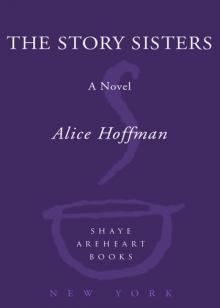 The Story Sisters
The Story Sisters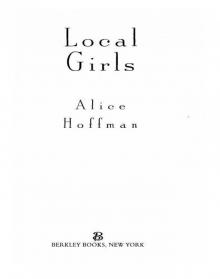 Local Girls
Local Girls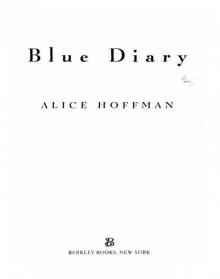 Blue Diary
Blue Diary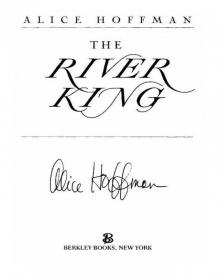 The River King
The River King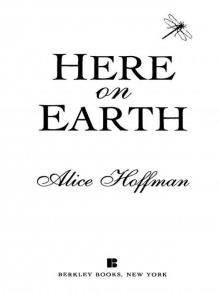 Here on Earth
Here on Earth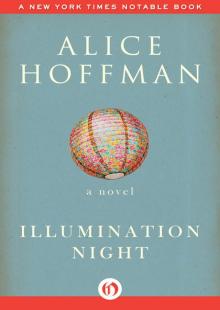 Illumination Night: A Novel
Illumination Night: A Novel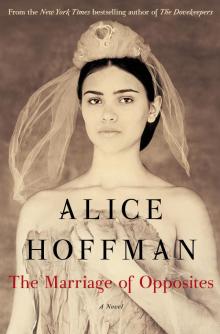 The Marriage of Opposites
The Marriage of Opposites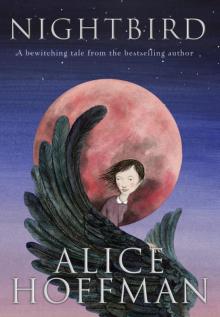 Nightbird
Nightbird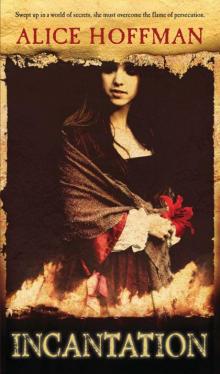 Incantation
Incantation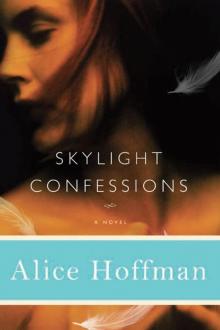 Skylight Confessions
Skylight Confessions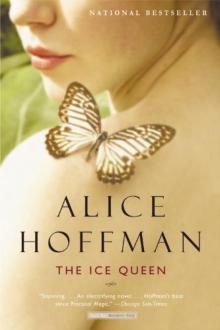 The Ice Queen
The Ice Queen Second Nature
Second Nature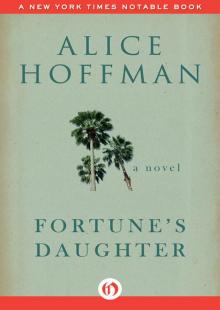 Fortune's Daughter: A Novel
Fortune's Daughter: A Novel Seventh Heaven
Seventh Heaven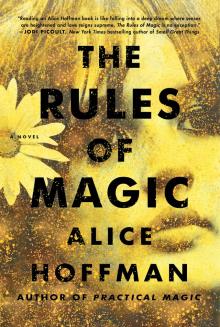 The Rules of Magic
The Rules of Magic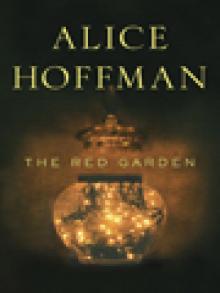 The Red Garden
The Red Garden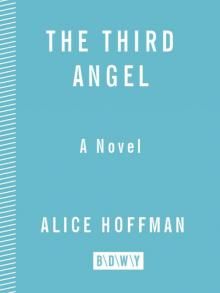 The Third Angel
The Third Angel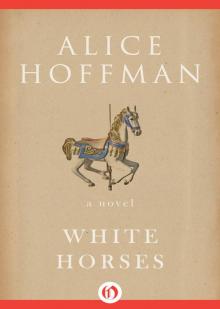 White Horses
White Horses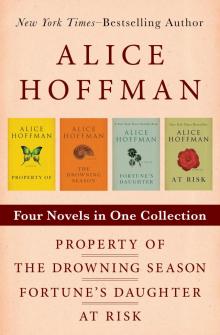 Property of / the Drowning Season / Fortune's Daughter / at Risk
Property of / the Drowning Season / Fortune's Daughter / at Risk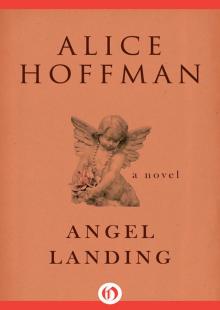 Angel Landing
Angel Landing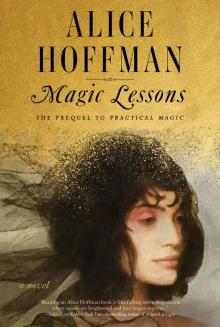 Magic Lessons
Magic Lessons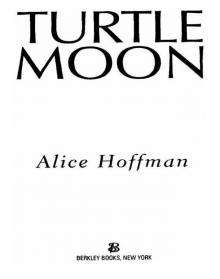 Turtle Moon
Turtle Moon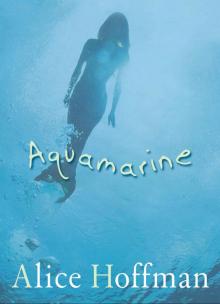 Aquamarine
Aquamarine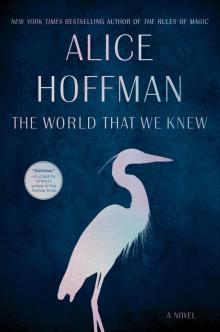 The World That We Knew
The World That We Knew Faithful
Faithful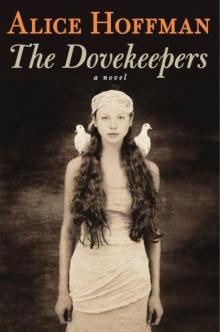 The Dovekeepers
The Dovekeepers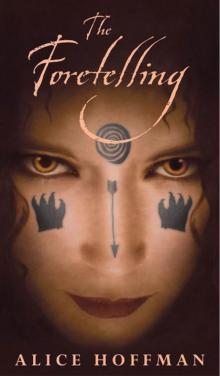 The Foretelling
The Foretelling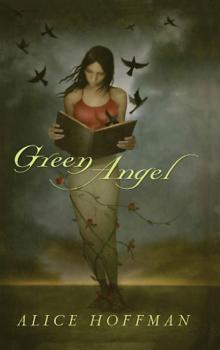 Green Angel
Green Angel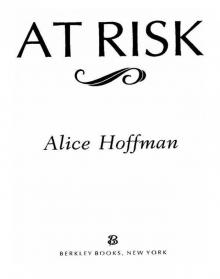 At Risk
At Risk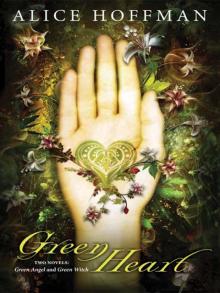 Green Heart
Green Heart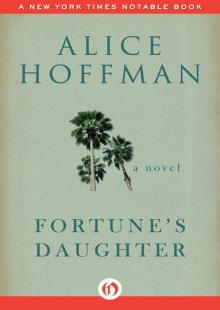 Fortune's Daughter
Fortune's Daughter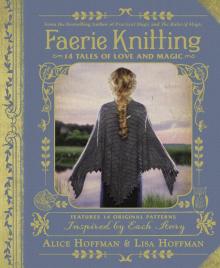 Faerie Knitting
Faerie Knitting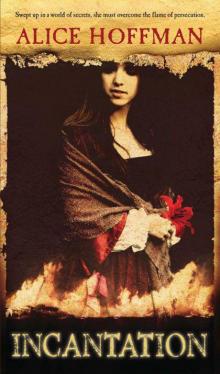 Incantation (v5)
Incantation (v5)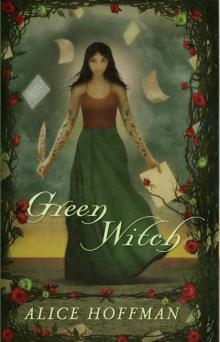 Green Witch
Green Witch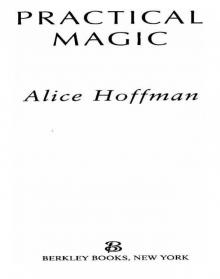 Practical Magic
Practical Magic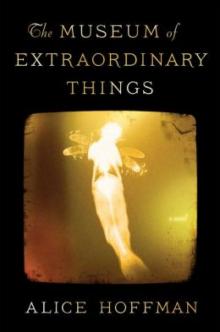 The Museum of Extraordinary Things
The Museum of Extraordinary Things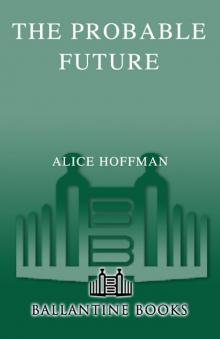 The Probable Future
The Probable Future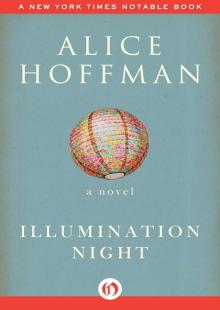 Illumination Night
Illumination Night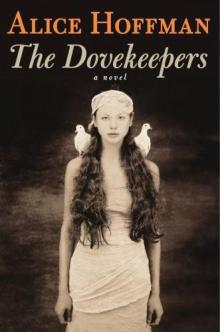 The Dovekeepers: A Novel
The Dovekeepers: A Novel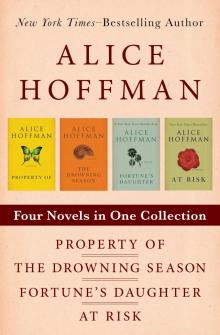 Property Of, the Drowning Season, Fortune's Daughter, and At Risk
Property Of, the Drowning Season, Fortune's Daughter, and At Risk